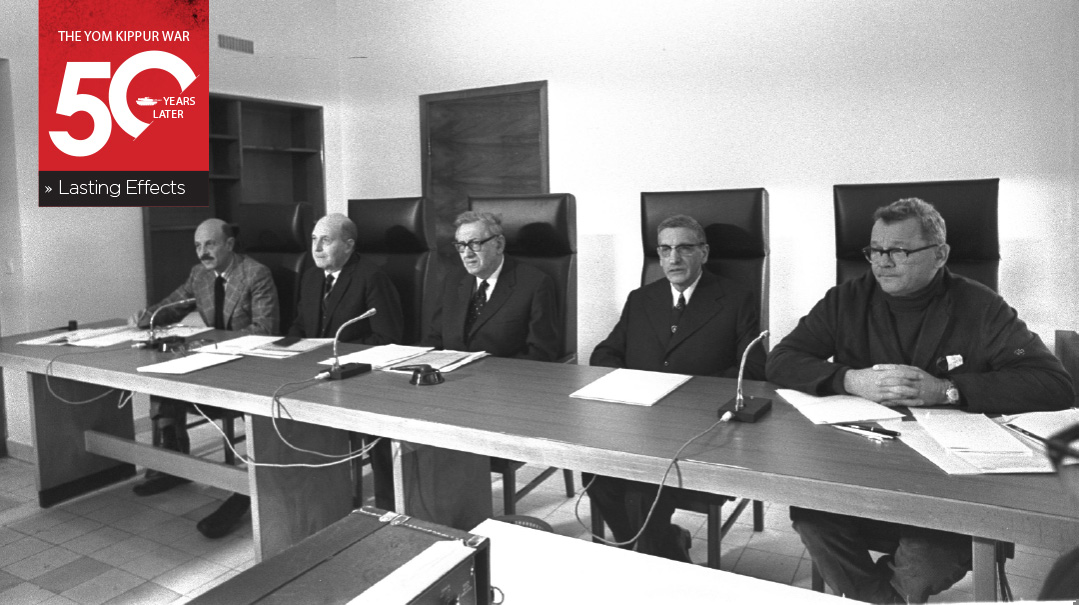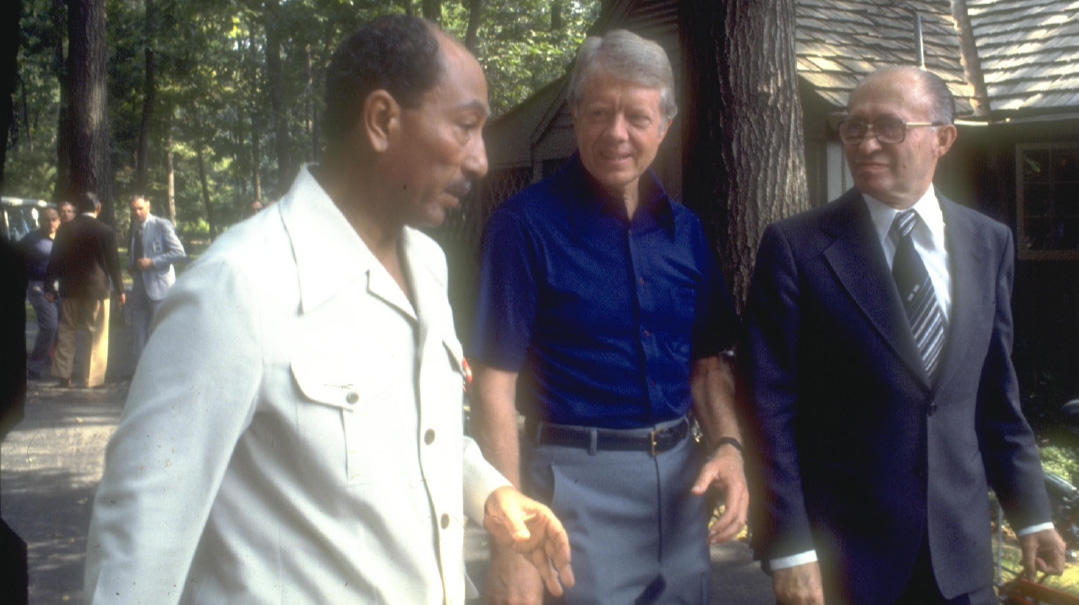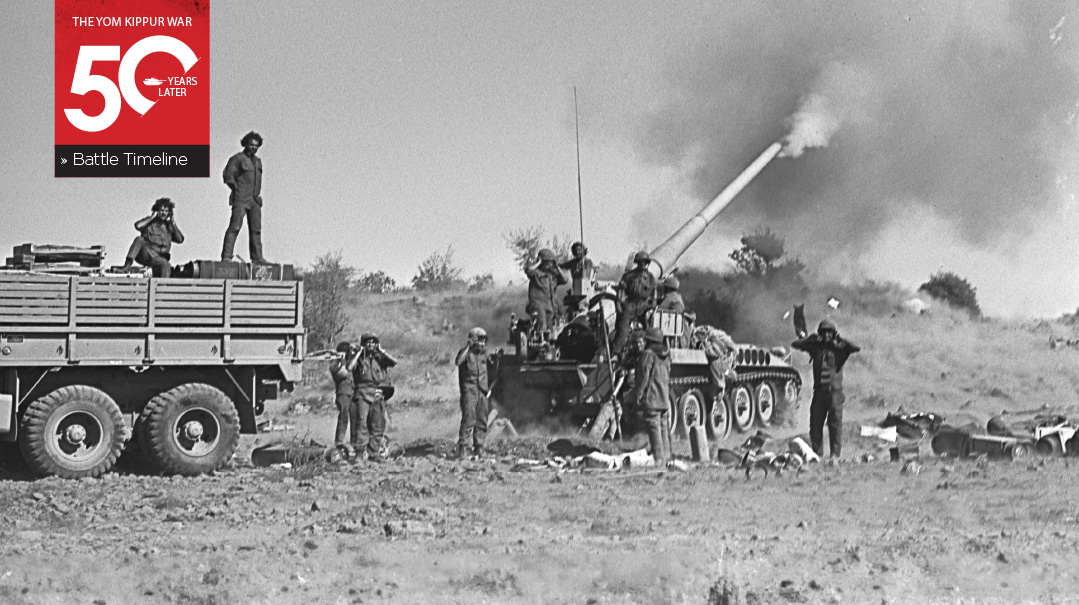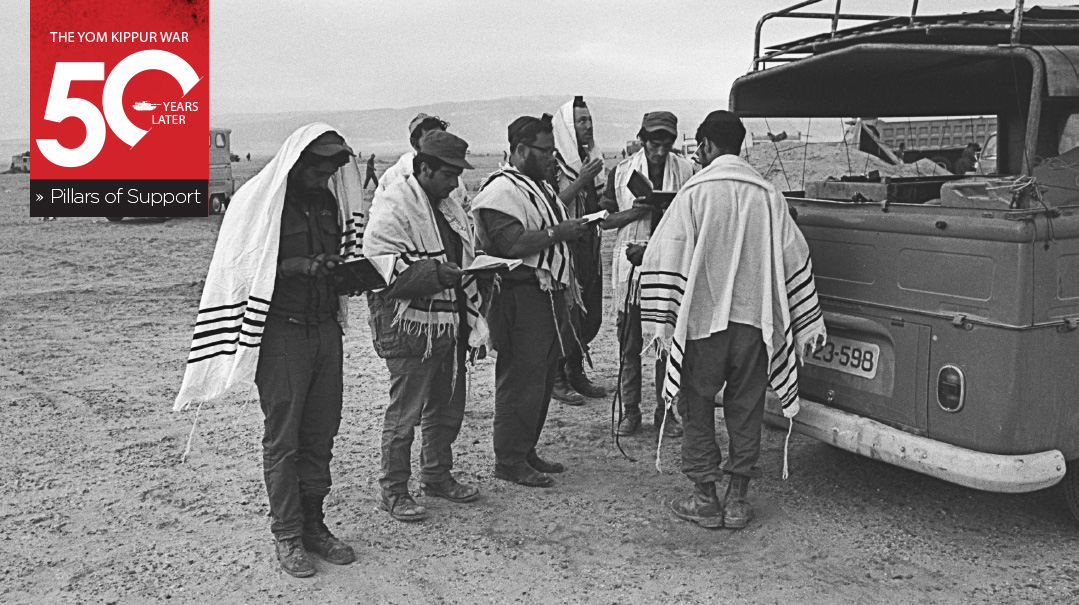6 Takeaways from the Yom Kippur War
| September 26, 2023In military terms, Israel may have won the Yom Kippur War, but it was a costly victory

1
IDF Brass Shaken Out
In military terms, Israel may have won the Yom Kippur War, but it was a costly victory. While Israel held on to its 1967 territorial gains, and even added some terrain on the Golan, the IDF lost 2,691 soldiers in battle, with 5,500 wounded.
Stunned by its early setbacks, the government empowered a national commission of inquiry known as the Agranat Commission to examine Israel’s failings, after which heads rolled. Led by High Court President Shimon Agranat, the commission recommended dismissing four top IDF intelligence heads found to be complacent. The commission found IDF Chief of Staff David Elazar to be responsible for Israel’s lack of preparedness. Elazar resigned on his own.
While Golda Meir’s Alignment party maintained its grip on power in the first election after the war in December 1973, her government fell nine days after the Agranat Commission published its report in April 1974, ending a long period of political continuity.
2
The Likud’s Sun Rises
The handwriting was already on the wall for Golda Meir in the December 1973 election, when the newly formed Likud Party, led by Menachem Begin, won 39 Knesset seats to Meir’s 51. While Yitzchak Rabin was able to hold the fort down after Meir resigned, it was only a matter of time until Begin and the Likud asserted itself.
In 1977, Israeli voters swept Begin and the Likud into power with 43 seats and one-third of the popular vote. Except for a couple of short and momentous gaps, the Likud has maintained itself as Israel’s ruling party for most of the last 46 years. The axiom in Israel that the left makes wars and the right makes peace began under Begin, for it was he who signed the Camp David Peace Treaty with Egypt in 1978.
3
Arabs Leave the Soviet Fold
Only Arab propaganda could have turned their military defeat in the Yom Kippur War into a victory, so shortly after the war, October 6 became a national holiday in Egypt called Armed Forces Day, which Egypt still celebrates with a military parade and rousing speeches.
In reality, President Sadat realized that in the battle of superpowers, the US had the upper hand over the Soviets, and if he was going to rebuild his depleted military, he had to court the US, and Israel. Sadat, in a sense, became a war hero himself in 1977 when he sued for peace, and visited Jerusalem, addressing the Knesset to prove his sincerity. It took another 15 years for Jordan to come along, and another 25 years more for the Abraham Accords to take hold, but Sadat was the pioneer.
He also paid for his courage with his life, when a Muslim fundamentalist assassinated him in 1981, ironically during the annual October 6 military parade. The peace with Egypt has always been a cold one, but it enhanced Israel’s security greatly by removing a major combatant from its southern flank.
4
50 Years of Lost Confidence
Many military experts contend that an Israeli preemptive strike would not have been as effective as it was in the Six Day War, when Egypt kept its warplanes exposed on the ground. But that doesn’t mean it would have backfired.
Golda Meir and Moshe Dayan had good reason to believe that the US would be angry at Israel; Washington even threatened not to resupply it if Israel struck first. But Israel might not have needed to be resupplied if it struck first and thwarted the Egyptian and Syrian attack. That weakness and indecisiveness have carried over to successive Israeli governments. Israel is perhaps the only country in the world that feels compelled to justify itself and seek the world’s approval for taking military action against its enemies.
5
Oil as a Weapon
Two weeks into the war, right after President Nixon asked Congress to authorize $2.2 billion in emergency military aid to Israel, the Organization of Arab Petroleum Exporting Countries (OAPEC) retaliated by slapping an embargo on oil exports to the US and several other allies. Coupled with production cuts, the price of a barrel quadrupled from $2.90 to $11.65 in three months, with the average prices at the pumps rising from 39 cents to 53 cents.
Those numbers sound laughable today, with oil above $80 a barrel and gas over $3 a gallon. But in those days, it was quite a shock, especially since gas was scarce and had to be rationed. The embargo was lifted in March 1974, but 50 years later, the oil cartel, now known as OPEC+, has 23 member-nations and last year accounted for some 38% of global oil production, wielding outsized influence over prices and supply.

Sadat, Carter and Begin stroll at Camp David where negotiations were no walk in the park
6
$120 Billion Later…
Israel began purchasing US arms in 1962 under the Kennedy administration. But it was only after the Yom Kippur War that Israel began receiving a steady military package from the US, when Congress became convinced that the next Middle Eastern war would be much more costly to America than providing a few billion dollars a year to a reliable ally like Israel.
The aid began in earnest after the 1978 Camp David treaty, when the US provided some $38 billion in military aid to Egypt over the next 12 years. For its end of the deal, Israel insisted the US provide it with enough military aid to maintain its qualitative military advantage. Since then, the US has given Israel more than $120 billion in military aid, which is now ensconced in 10-year MOUs (memorandums of understanding) that started in 2007 under the George W. Bush administration and was continued until 2028 by President Obama before he left office.
(Originally featured in Mishpacha, Issue 980)
Oops! We could not locate your form.






